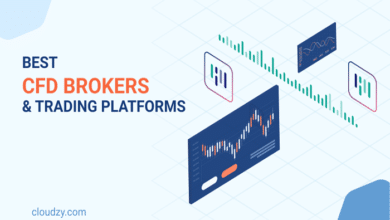
Trade markets serve as the heartbeat of the global economy, facilitating the exchange of goods, services, and currencies across borders. In this guide, we delve deep into the multifaceted realm of trade markets, exploring strategies, risks, and opportunities that shape this dynamic ecosystem.
Trade Markets
Trade markets encompass a broad spectrum of activities, ranging from import-export transactions to currency trading. At their core, trade markets facilitate the exchange of goods and services between countries, driving economic growth and fostering international cooperation.
Key Players in Trade Markets
Central to the functioning of trade markets are various stakeholders, including governments, multinational corporations, financial institutions, and individual traders. Each player contributes to the liquidity and efficiency of trade markets, influencing price movements and market dynamics.
Factors Influencing Trade Markets
Trade markets are influenced by a myriad of factors, including geopolitical events, economic indicators, technological advancements, and regulatory changes. Understanding these drivers is crucial for navigating the complexities of trade markets and making informed trading decisions.
Strategies for Success
To succeed in trade markets, traders employ a variety of strategies, including fundamental analysis, technical analysis, and risk management techniques. By leveraging these strategies effectively, traders can capitalize on market opportunities while minimizing potential losses.
Risks and Challenges
Despite the lucrative opportunities they offer, trade markets are not without risks. Volatility, geopolitical tensions, and regulatory uncertainty can all pose significant challenges to traders. Managing these risks requires a disciplined approach and a thorough understanding of market dynamics.
Emerging Trends in Trade Markets
The landscape of trade markets is constantly evolving, driven by technological innovations and shifting geopolitical dynamics. From the rise of e-commerce to the growing importance of sustainable trade practices, staying abreast of emerging trends is essential for remaining competitive in today’s global marketplace.
Global Trade Wars and Their Impact
In recent years, escalating trade tensions between major economies have dominated headlines and roiled global markets. Trade wars, characterized by tit-for-tat tariffs and protectionist measures, can have far-reaching consequences, disrupting supply chains and dampening economic growth.
Opportunities in Developing Markets
While developed economies continue to dominate global trade, emerging markets present exciting opportunities for growth and expansion. With rising consumer demand and favorable demographic trends, investing in developing markets can offer significant returns for savvy traders.
Trade Markets in the Digital Age
Advancements in technology have revolutionized the way trade markets operate, enabling faster transactions, greater transparency, and increased accessibility. From algorithmic trading to blockchain-based solutions, digital innovations are reshaping the future of trade markets.
The Future of Trade Markets
Looking ahead, trade markets are poised to undergo further transformation, driven by technological innovation, shifting consumer preferences, and evolving regulatory frameworks. Adapting to these changes will be paramount for traders seeking to thrive in an increasingly interconnected global economy.
Conclusion
Trade markets represent a dynamic and complex ecosystem that offers both opportunities and challenges for traders. By understanding the factors influencing market dynamics, employing effective strategies, and staying abreast of emerging trends, traders can navigate the intricacies of trade markets with confidence and achieve their financial objectives.
FAQs
1. What are trade markets?
Trade markets encompass a broad spectrum of activities, including the exchange of goods, services, and currencies between countries.
2. What factors influence trade markets?
Trade markets are influenced by various factors, including geopolitical events, economic indicators, technological advancements, and regulatory changes.
3. What strategies can traders employ to succeed in trade markets?
Traders can employ a variety of strategies, including fundamental analysis, technical analysis, and risk management techniques, to succeed in trade markets.
4. What are the risks associated with trade markets?
Trade markets are not without risks, including volatility, geopolitical tensions, and regulatory uncertainty, which can pose significant challenges for traders.
5. How are trade markets evolving in the digital age?
Advancements in technology are reshaping trade markets, enabling faster transactions, greater transparency, and increased accessibility through digital innovations like algorithmic trading and blockchain-based solutions.





